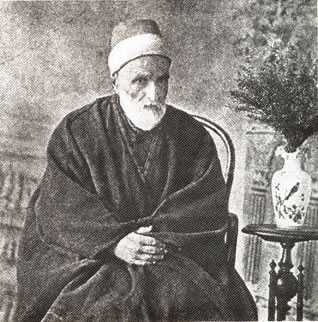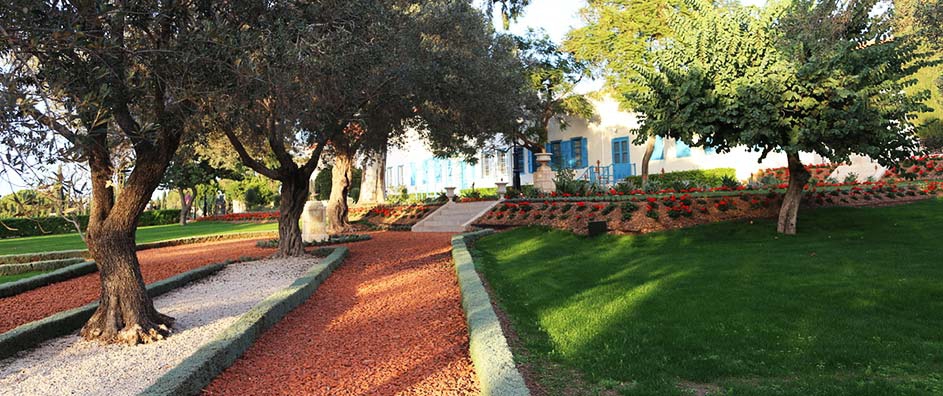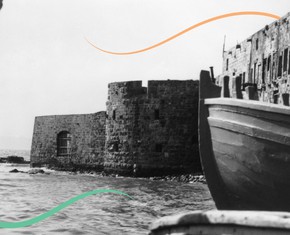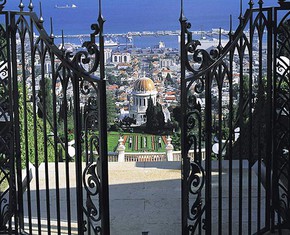The views expressed in our content reflect individual perspectives and do not represent the authoritative views of the Baha'i Faith.
Baha’u’llah and the members of his family had lived in dignity and resignation during the hardship of their exiles. Now with the influx of Baha’is from Persia came funds donated to Baha’u’llah, and their hardship eased. Detachment superceded deprivation. As the lives of Baha’u’llah and his family showed how the spirit can rise above poverty, they now showed how the same spirit can rise above material concerns during relative prosperity. The members of the household continued to live in the utmost simplicity. They used the gifts and funds the Baha’is donated to mitigate the hardships of the poor and to cheer the hearts of the friends for whom even the simplest gifts of tea or sugar from the hand of Baha’u’llah became priceless treasures.
Baha’u’llah taught his followers to rely on God, not on the transitory things of the world. He wrote in The Hidden Words:
Be not troubled in poverty nor confident in riches, for poverty is followed by riches, and riches are followed by poverty. Yet to be poor in all save God is a wondrous gift… – The Hidden Words, p. 40.
In one of his letters to the Shah, Baha’u’llah recalls an event from his childhood that spoke to him about the transitory nature of material concerns. At the wedding of a relative he witnessed a spectacular and elaborate puppet show about a king and his fawning court, outfitted with ornate costumes, pageantry and the fanfare of trumpets. Later Baha’u’llah encountered a man with a box leaving the wedding. Baha’u’llah asked the man what was in the box. The man replied that all the lavish trappings of the king and his entourage, their pomp and glory now rested within that box. Baha’u’llah wrote that ever since that day, all the vanities of the world seemed to him as insignificant as the trappings put away in that puppeteer’s box.
During the later years of Baha’u’llah‘s life, Abdu’l-Baha attended to all other matters so that Baha’u’llah was free to write and meet with his followers. Baha’u’llah’s prolific writings, if compiled together, would amount to well over a hundred volumes. These writings, unique in all religious history for their originality and provenance, so powerful that they started a world faith brought by a prisoner, came directly from Baha’u’llah.

Mirza Aqa Jan
The amanuensis of Baha’u’llah, Mirza Aqa Jan, had a particularly rapid method of taking dictation. He would sit near Baha’u’llah with a large bowl of ink, a stack of papers, and ten or twelve reed pens. His pen jumped rapidly across the papers, making a shrill sound that accompanied the voice of Baha’u’llah. As he paced back and forth in his room, Baha’u’llah would often chant his writings or speak them, depending upon the theme. Mirza Aqa Jan’s pen, flying rapidly across the page, would occasionally slip from his hand, and he quickly would grasp another and continue. After he took his dictation, he would go over the notes with Baha’u’llah, who would correct any inaccuracies or errors. These would then be read aloud to several persons who would transcribe them.
The Baha’is disseminated these transcriptions throughout the Middle East, and they gradually called into being a new community, radically at odds with the prevailing culture. Baha’is began to use democratic principles of equity and consultation, while a monarch and the clergy jointly ruled their native government with an iron hand. Baha’i women, even though greatly restricted by the customs and laws of their country, still managed to have important roles in the development of the Baha’i community. Baha’is who traveled to Akka and returned to Persia eager to share their vision of the teachings of Baha’u’llah brought continual inspiration, and the Faith grew.
Older now, still suffering from the grave injuries inflicted by heavy prison chains and attempted murder by poisoning, Baha’u’llah occasionally took a respite from writing to spend time with members of the extended family and the Baha’is who came to visit him. Often they held picnics in the refreshing gardens at Bahji, where Baha’u’llah paid particular attention to the children, praising them for their good conduct and cleanliness, listening to the details of their lives, and rewarding them with special sweets.
Baha’u’llah’s writings, as one historian characterizes them:
… remain unequalled and unmatched amongst the Scriptures of mankind. Bahá’u’lláh states that the volume of His revealed Word totals the Scriptures of the Manifestations of God preceding Him. We ought to remember the incalculable advantage which the Writings of Bahá’u’lláh possess in relation to the Holy Books of former times. Their originals are extant and well preserved, and future generations will be spared the crushing responsibility of deciding the authenticity of the Works ascribed to the Prophet. Oral tradition finds no place in the Scriptures of the Bahá’í Faith. – H.M. Balyuzi, Baha’u’llah – The King of Glory, p. 382.
Adapted from One With All The Earth, © Kalimat Press 2003, All Rights Reserved.
















Comments
Sign in or create an account
Continue with Googleor